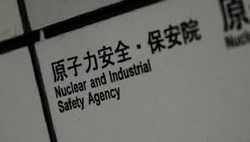Updated: Sept. 10, 2012 (Initial publication: June 27, 2012)
Sectorial Analysis

Updated: July 17, 2012 (Initial publication: July 10, 2012)
Breaking news

Updated: June 1, 2012 (Initial publication: May 24, 2012)
Breaking news

Updated: Jan. 17, 2012 (Initial publication: Jan. 17, 2012)
Sectorial Analysis

Translated Summaries
In The Journal of Regulation the summaries’ translation are done by the Editors and not by the authors
ENGLISH
The French Loi de finance rectificative pour 2011 (Rectified Budget for 2011) was censured by the Conseil constitutionnel (French Constitutional Council) after being adopted by Parliament, but before it was published in the Journal officiel de la République Française (Official Journal of the French Republic), as a simple law can not limit the power available to the independent regulator of hiring. The "Conseil constitutionnel" does not allow the "Loi de Finances" to ask a general limit of the Regulator workforce, paid by the State. Consequently, the "Loi de Finances 2012" will not give up the will of Parliament to limit the numbers but will do in a precise and quantitative way.
FRENCH
La Loi de finances rectificative pour 2011 a été censuré par le Conseil constitutionnel, après avoir été adoptée par le Parlement, mais avant d’avoir été publiée au Journal officiel de la République française, car une loi simple ne peut limiter le pouvoir autonome d’embauche du régulateur. Le Conseil constitutionnel n’admet pas que la loi de finance puisse poser d’une façon générale la limite des effectifs du régulateur, payés par l’Etat. En conséquence, la loi de finance pour 2012 ne renoncera pas à la volonté du Parlement de limiter ces effectifs mais le fera d’une façon précise et chiffrée.
SPANISH
El Loi de finances rectificative pour 2011 (presupuesto rectificado de 2011) fue censurado por el Conseil Constitutionnel (Consejo Constitucional francés) después de haber sido aprobada por el Parlamento, pero antes de su publicación en el Journal Officiel de la République Française (Diario Oficial de la francesa República), como una simple ley no puede limitar la potencia disponible para el regulador independiente de la contratación.
ITALIAN
La loi de finance rectificative pour 2011 (legge finanziaria per il 2011) è stata modificata dal Conseil Constitutionnel (la Corte costituzionale francese) dopo essere stata votata in parlamento e prima di essere stata pubblicata alla Gazzetta ufficiale della Repubblica francese.
..........................
Other translations fortcoming.
Updated: Jan. 16, 2012 (Initial publication: Oct. 12, 2011)
Translated Summaries

Updated: Jan. 4, 2012 (Initial publication: July 1, 2011)
Contributions

Updated: Jan. 4, 2012 (Initial publication: May 28, 2011)
Releases : I. Isolated Articles
Translated Summaries
ENGLISH
Two and a half years after having been established by the LME, the French Competition Authority has uncontestably acquired its “place in the sun” amongst the competition authorities of other countries, as demonstrated by multiple indicators.
ITALIAN
Articolo: L’Autorità garante della concorrenza tra “regolazione” e politica in materia di concorrenza
Due anni e mezzo dopo l’instaurazione da parte del LME, l’Autorità francese garante della libera concorrenza ha trovato il suo posto tra le diverse autorità degli altri paesi, così come è stato dimostrato da diversi indicatori.
SPANISH
Artículo: La Autoridad de la competencia, entre “regulación” y política competitiva.
Después de dos años y medio de haber sido establecido por el LME, la Autoridad francesa de la competencia ha incontestablemente adquirido su “lugar bajo el sol” entre las autoridades de la competencia de otros países, como demostrado por varios indicadores.
.....................
Other translations forthcoming.
Updated: Dec. 21, 2011 (Initial publication: Nov. 17, 2011)
Contributions

Updated: Dec. 13, 2011 (Initial publication: Oct. 18, 2011)
Contributions

Updated: Dec. 8, 2011 (Initial publication: Sept. 27, 2011)
Releases : Neutrality in Systems of Economic Regulation

Translated Summaries
ENGLISH
Article: Neutralization in economically regulated industries using procedural law techniques
In itself, regulation does not necessary require judicial review of regulators’ acts, whether the regulator is a ministry or an independent authority. In short, regulators could have the “last word” in all circumstances. However, because of an equal concern for democratic legitimacy and care to respect its international commitments, the French Parliament is convinced that judicial review over regulators’ actions is necessary.
______________________________________________________
FRENCH
Article : La neutralisation dans les secteurs économiques régulés par les techniques procédurales
En soi, la régulation n’appelle pas nécessairement un contrôle juridictionnel du régulateur, qu’il soit une administration ou une autorité indépendante. Ce régulateur, sommes toutes, pourrait avoir en toutes circonstances « le dernier mot ». Pourtant, moitié par conviction démocratique, moitié par prudence en raison de ses engagements internationaux, le législateur français s’est convaincu qu’un tel contrôle était indispensable.
_____________________________________________________
SPANISH
Artículo: Neutralización en industrias económicamente reguladas usando técnicas del derecho procesal.
En sí mismo, la regulación no requiere de revisión judicial de las acciones del regulador, ya sea que el regulador es un ministerio o una autoridad independiente. Para resumir, los reguladores podrían tener la “última palabra” en todas las circunstancias. No obstante, una preocupación por la legitimidad democrática y deseo de respetar sus compromisos internacionales, el Parlamente francés está convencido que una revisión judicial sobre las acciones de los reguladores es necesaria.
______________________________________________________
.....................
Other translations forthcoming.
Updated: Dec. 6, 2011 (Initial publication: Oct. 12, 2011)
Bibliographic Reports : Books

Translated Summaries
In The Journal of Regulation the summaries’ translation are done by the Editors and not by the authors
ENGLISH
Bibliographic Report (Book): The regulation of industrial networks, what evolutions and perspectives in France and in Europe? by Fondation Nationale Entreprise et Performance
Full citation: Fondation nationale Entreprise et Performance, La régulation des réseaux industriels. Quelles évolutions et perspectives en France et en Europe?, Preface Hagelsteen, Marie-Dominique, 105 p., La documentation Française, 2011.
Report by Marie-Anne Frison-RocheManaging Editor and Director
This report ambits to improve the regulation of industrial networks in France and in Europe. Therefore, the Fondation nationale Entreprise et Performance (FNEP) concentrates its study on industrial networks, a category in which it includes telecommunications, energy, rail transportation, and postal services, in France and in Europe. The report proposes new rules or adaptations to old ones in order to increase regulators’ independence, efficacy, and oversight. It then suggests rules be modified to allow for the implementation of regulation at the European level, whenever the relevant market is European in scale.
FRENCH
Compte-rendu bibliographique (Livre): La régulation des réseaux industriels. Quelles évolutions et perspectives en France et en Europe ? par Fondation Nationale Entreprise et Performance.
Compte-rendu faite par Marie-Anne Frison-Roche
Ce rapport ambitieux vise à améliorer la régulation des réseaux industriels en France et en Europe. Par conséquent, la Fondation nationale Entreprise et Performance (FNEP) concentre son étude sur les réseaux industriels, une catégorie dans laquelle le rapport inclut les télécommunications, l’énergie, le transport ferroviaire, et les services postaux, en France et en Europe. Le rapport propose de nouvelles règles ou des adaptations de précédentes, afin d’accroître l’indépendance des régulateurs , d’augmenter l’efficacité et la surveillance. Il propose ensuite que des règles soient modifiées pour permettre la mise en œuvre de la régulation au niveau européen, chaque fois que le marché pertinent est de dimension européenne.
ITALIAN
Relazione bibliografica (Libri): III-1.9: La regolazione delle reti industriali. Quali sono le evoluzioni e le prospettive in Francia e in Europa? A cura della Fondation Nationale Entreprise et Performance
Questa relazione punta a migliorare la regolazione delle reti industriali in Francia e in Europa. Tuttavia la “Fondation Nationale Entreprise et Performance” (FNEP) focalizza la sua attenzione sulle reti industriali, una categoria che include le telecomunicazioni, l’energia, il trasporto ferroviario ed i servizi postali, in Francia ed in Europa. La relazione propone delle nuove regole o una modifica delle regole esistenti per aumentare l’indipendenza, l’efficacia e la vigilanza delle autorità di regolazione. Inoltre, propone di modificare alcune norme per permettere l’applicazione della regolazione al livello europeo, ogni volta che il mercato rilevante è quello europeo.
.....................
Other translations forthcoming.
Updated: Oct. 3, 2011 (Initial publication: Sept. 30, 2011)
Contributions

Updated: Sept. 7, 2011 (Initial publication: Sept. 1, 2011)
Contributions

Updated: July 19, 2011 (Initial publication: July 1, 2011)
Bibliographic Reports : Books

